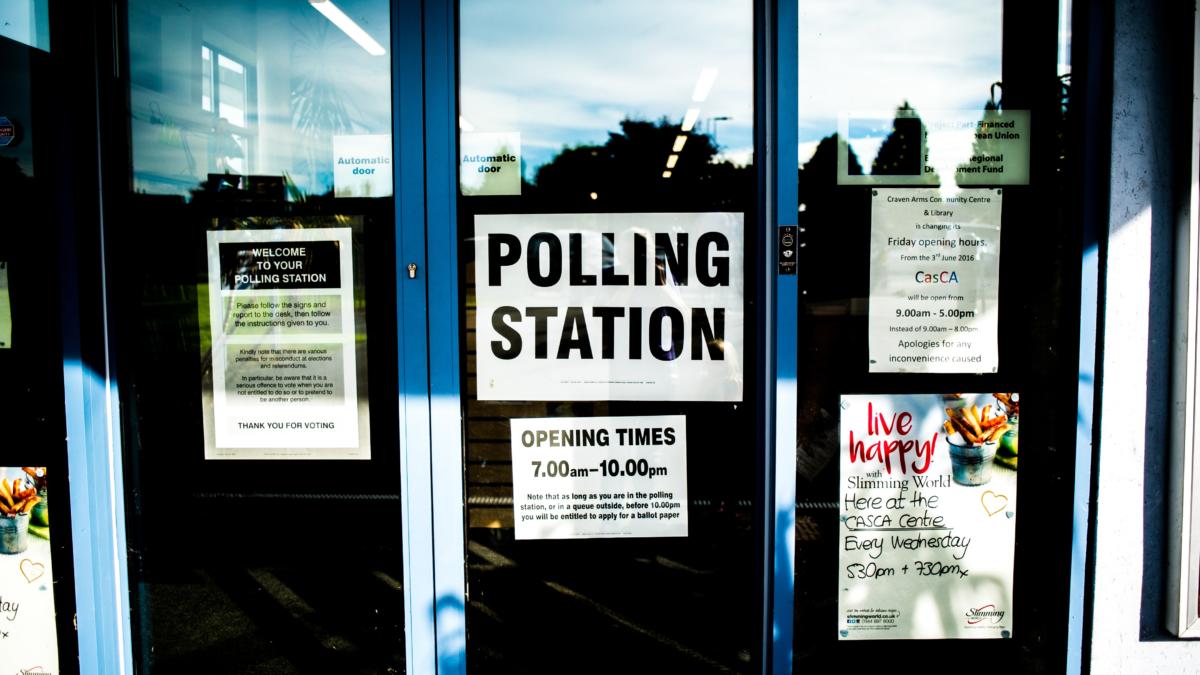Vote to give city employees their political rights
Before City Council, librarian Richard Levinsen began his plea “For Philadelphia to strip its employees of their basic Constitutional rights as a condition of employment is to strip us of our dignity, our humanity, and our pride. Am I really less of a citizen in your eyes because I chose a career in public service?”
Believe it or not, Philadelphia City Employees, like Levinsen, are not allowed to have “involvement in political campaigns or in management of political parties.” Meaning there are 30,000 voters, about 2 percent of Philadelphia’s population, who work directly with the government every single day and are barred from fully exercising their political rights.
On Feb. 13, a bill proposed by Councilmember Derek Green was approved unanimously by City Council to amend the City Charter. During the June 2 election, Philadelphians will get to vote on the proposed amendment to the Home Rule Charter, which would enable 30,000 adults to become fully politically active.
This issue was brought to Green in 2019 by citizens concerned about the “strictness” of Philadelphia’s rules. They cited the federal HATCH Act, which had been revised to allow federal government employees to participate in political activity on their own time. It became clear to members of the City Council that it was time to modernize this rule, efforts began in 2019 but failed to pass before the new year.
In front of City Council, Levinsen explained, “Make no mistake, a great political battle for the hearts and minds of the American people is coming. This battle will be fought in voting booths and precincts around the nation. Please don’t send us into this fight with our hands behind our backs.”
Pat Christmas, the policy director for the Committee of Seventy (a nonpartisan organization that advances ethical and effective government in Philadelphia), said, “I’m not aware of any city or jurisdiction that has stricter rules than Philadelphia.”
Upon review, Philadelphia has the strictest rules of any major city in the United States. New York City goes as far as allowing city employees to “work on a campaign and get paid” and they “do not even need a waiver to do so.”
Philadelphia’s strict regulations were put into place during a reform era. Since the adoption of the Home Rule Charter in 1951 city employees have been restricted from fully exercising their political beliefs. The rules came in the wake of a need for reform following World War II, corruption was rampant, and these restrictions were seen as necessary. Legal scholars have recently raised questions about the constitutionality of Philadelphia’s current rules citing potential First Amendment issues.
Under current regulations, Philadelphia employees can donate to a campaign and distribute self-made campaign materials.
Philadelphia employees cannot solicit money for a campaign (urge people to donate), canvass for a political campaign, volunteer for a national campaign, volunteer for a statewide campaign or distribute campaign literature for a political candidate.
After World War II, the City of Brotherly Love was the largest it had ever been with a population well over 2 million. Many may think that corruption is still a major problem within city government, but as Christmas puts it, “Despite the continuing challenges with corruption, there has been a great deal of progress.”
It’s easy to view “city employees” as a synonym for bureaucrats. In reality, city employees are librarians like Levinsen, IT workers, 311 operators, health-care aides, and everything in between. The proposed legislation would allow social workers, office administrators, technicians and various other professions to become politically active just in time for the 2020 election.
All political activity done by city employees must be done off the clock and away from their job, regardless of the passage of this amendment. All parties agree that political work should be done outside of public facilities. “Let me be clear, for a city employee to engage in politics while on the job is not just illegal, it is immoral,” said Levinsen. The hope is that this amendment would increase political engagement, as well as voter turnout in the city.
This bill not only grants city employees the opportunity to become involved in the political system but has an emphasis on training and awareness around the new rules. Green had expressed that city employees currently do not know their political rights, which has dissuaded employees from signing petitions or getting involved in their community.
If Bill 200015 is voted into law, nearly 2 percent of the Philadelphia population would be granted the right to become politically active. Philly is a Democratic stronghold with Hillary Clinton getting 82 percent of the vote in 2016 and Barack Obama getting 85 percent in 2012. However, allowing 30,000 people to volunteer for political campaigns could affect voter turnout and political engagement in the areas surrounding Philadelphia.
On June 2, Philadelphians have the opportunity to vote on this amendment, potentially granting city employees the right to support their political beliefs publicly for the first time since 1951.
– Jason N. Peters | Philadelphia

Philly streets keep people healthy
Fresh air has become a luxury, and lifeline, in the time of COVID-19. With parks closing in cities across the U.S. and the orders to stay inside extending into the foreseeable future, getting fresh air from walking outside has become an important ritual of our day-to-day. Accessing the outdoors, particularly in urban areas, is not just important to our physical well-being, but for our mental health, as well.
Some try to avoid crowded sidewalks by walking at odd hours of the day, while others use databases for finding wide sidewalks to navigate cities. Those who run or cycle look to community groups, like #PRSOLO through Philadelphia Runner, to be motivated to go outside for regular fresh air and exercise.
But the importance of fresh air – and the space to get it during outbreaks of disease – is not something novel to this pandemic. The closing of Martin Luther King Drive to make room for cyclists, runners and walkers to practice safe outdoor distancing is an aspect of urban infrastructure that is baked into the blueprints of Philadelphia.
From its inception, the planners of Philadelphia wanted fresh air to be available to citizens, even those living in the heart of the city. William Penn and his first town surveyor, Thomas Holme, planned some of the famous details of Philadelphia: the grid-like streets, the public squares, and the tidy blocks for houses to line. The way the streets were structured was not solely for ease of movement, but more specifically for openness and to prevent disease in the city.
Penn was a witness to both the Great Plague of London in 1665 and the Great Fire that decimated the city a year later. The small, winding and cramped streets that made up most of early modern London were identified as contributors to these catastrophes.
After looking at the failures of the past, Penn decided to improve upon earlier urban plans by making Philadelphia’s major streets much wider than many of the cities of the 17th century. The main avenues were built to be 100 feet across, the streets along the river were 60 feet wide, and all other roads were 50 feet in diameter. He hoped that this improvement would prevent city-wide fires. Equally so, he wanted the open streets to provide fresh air and space to keep Philadelphians healthy.
The perceived correlation between good streets and good health continued into the 18th century. Benjamin Franklin looked to the upkeep of streets to keep 18th-century Philadelphians healthy. In the 1750s, Franklin was tired of the dirty streets turning to mud in the winter and dust in the summer – both of which left shoes and clothing covered in dirt as it was tracked into stores and homes.
In 1757, after discussing the idea with the citizens in his area of town, Franklin proposed a bill to pave the streets of Philadelphia and have it cleaned on a weekly basis. In his autobiography, Franklin notes the happiness of his neighbors when they saw the upkeep of the streets:
“All the inhabitants of the city were delighted with the cleanliness of the pavement that surrounded the market, it being a convenience to all, and this raised a general desire to have all the streets paved.” In the 17th and 18th centuries, people looked to street infrastructure to keep people healthy. In the 21st century, we look to them as opportunities to get fresh air and exercise to keep us healthy.
The decision to make space for pedestrians to safely move about outside is something built into the history of Philadelphia. Policies closing roads to make more room for pedestrians are echoes to some of the earliest infrastructural plans that Penn and his team envisioned. In a place that has seen many outbreaks of disease, from yellow fever to the 1918 flu, and now COVID-19, looking to Philadelphia’s urban policies and infrastructures of the past might be one way to support the health of the city today.
– Molly Nebiolo | Philadelphia
Shout out to those working in behavioral health, too
I was hoping to honor and acknowledge some forgotten heroes, the direct care professionals during this COVID-19 pandemic.
My name is Nicole Buckley, I’m the executive director of the Special Friends Foundation. Special Friends is a nonprofit agency supporting adults with intellectual disabilities and autism. We provide residential 24/7 care to men in homes both in Drexel Hill and Newtown Square.
The agency was founded by two parents of Louis, a resident who lives in the Drexel Hill home. Looking for the best quality of care, and meaningful life, the Garavente’s couldn’t find the right provider to care for their son’s complexities, so they started their own agency – I just operate and maintain it.
The staff are angels among us, they have sacrificed their own exposure risk and their families to step up and live in, some working around the clock caring for these men who can’t care for themselves. Preparing meals, bathing, reading stories, doing a puzzle, taking a walk, throwing a football and cooking Easter dinner are among the common things these caretakers do each day.
Yet it is just how much they go beyond, waking up all hours of the night to sit and talk or hold the residents because their fear and anxieties don’t quite understand why their worlds are suddenly so unfamiliar. Unable to see their families, friends, go to day programs, see their behavior therapists, their jobs or their favorite pizza shop on Thursday nights – COVID has turned their world upside down.
For folks with autism, routine and predictability are everything. For these young men, most of whom are their 20s, their health, safety and lives depend on our awesome staff. There are no worries, only staff proclaiming to stand by the men they care for no matter what the future holds. We are blessed that their efforts have allowed all of the men and staff to remain healthy and in their own homes.
Rarely acknowledged, often underpaid the quiet champions of care are the Direct Care support staff that today, really are saving lives!
– Nicole Buckley | Philadelphia
Congress must support nonprofits during pandemic
The COVID-19 pandemic threatens the health of millions in this country and around the world. It also presents additional challenges for more than 5 million Americans living with Alzheimer’s, their caregivers, the research community and the nonprofits serving these vulnerable populations. I have seen the complications firsthand COVID-19 has cause for my family member who was living with Alzheimer’s.
Thankfully, Congress can act to help the Alzheimer’s and dementia community during this crisis by including provisions to support the community in the fourth economic relief package.
Economic relief package No. 4 would be promoting Alzheimer’s awareness to, first, promote the Alzheimer’s Awareness to Prevent Elder Abuse Act. It would require the Department of Justice to develop best practices to assist professionals who support victims of abuse living with Alzheimer’s.
Next, it would also include the bipartisan improving HOPE for Alzheimer’s Act, which would increase the use of the care planning benefit to help more families by educating clinicians on the Alzheimer’s and dementia care planning services available through Medicare.
Lastly, during this crisis, nonprofits are providing tremendous support to the communities they serve, despite facing economic hardships. Congress must establish an exclusive fund to support nonprofits with between 500 to 10,000 employees, including loan forgiveness to ensure charities like the Alzheimer’s Association can continue to effectively serve the communities that depend on them.
– Shirley Dash | Southwest Philadelphia

Yo, Philly: Scoop up your dog doo, please!
Life under quarantine has Philadelphians looking for ways to beat the boredom and itching for a change of scenery. For many dog owners, that means taking more than the usual number of walks – and dealing with more than the usual amount of dog waste.
But a stroll around the neighborhood with your four-legged friend can be more than just a stress-reliever. It’s also a chance to practice some of the small actions we can all take to improve our surroundings and enjoy our city. Everyone knows that uncollected dog droppings are a nuisance, an eyesore, and a smelly menace to clean shoes everywhere.
But they’re also an environmental hazard, disrupting ecosystems and affecting plants, animals, and even human beings in ways that might surprise you. When left on the ground, dog waste breaks down and washes into the Schuylkill and Delaware Rivers, polluting the water with bacteria, parasites and other pathogens.
It also releases nutrients that cause excessive algae growth and deplete the dissolved oxygen levels in the water, harming aquatic life and often making creeks and rivers appear murky. In large enough quantities, this pollution can make the water unusable for boating, fishing, and other recreational activities. It’s no wonder the Environmental Protection Agency (EPA) considers dog poop one of the major sources of water pollution in any urban area.
In light of these impacts, it’s disturbing that a substantial number of American dog owners – as many as 40 percent, according to some studies – don’t bother to pick up after their pets. Meanwhile, Philadelphia’s human population keeps growing. More people mean more dogs, and more dogs mean more poop. If we want to protect our water, it’s time for dog owners to take responsibility.
Here’s what you can do:
Clean it up. Take a bag with you on walks. You don’t need a special pet waste bag; a plastic grocery bag works just fine! Turn the bag inside out over your hand and use it as a glove to pick up the waste, then invert again and tie it off until you get back home.
Dispose of it properly. Dog waste is best processed the same way as human waste: at a sewage treatment plant. Simply dump the feces from the bag into the toilet and flush. Never drop your dog’s droppings in an open storm drain.
Storm drains lead directly to our local waterways, and improper disposal can create clogs and degrade water quality. Sometimes flushing down the toilet is not an option; if that’s the case, toss the bagged waste into a trash can (not a recycling bin – it will only contaminate the contents). Though many gardeners use animal manure as a fertilizer, dog waste is not suitable for composting, so keep it away from your plants. Littering is never an option, so please don’t throw your bags into the woods or into the bushes.
Even in normal times, cleaning up after your pet is essential to the health of people and all living things in the city. But now, with more Philadelphians relying on public spaces for safe, socially-distanced exercise and recreation, it’s more important than ever to keep our streets, sidewalks, and trails free of animal waste.
During this challenging time, let’s come together and do our part as citizens to keep our communities and watersheds clean and beautiful.
– Kadafi El-Kardah | Philadelphia
Kadafi El-Kardah is the Community Engagement Specialist at the Pennsylvania Environmental Council (PEC). PEC protects and restores the natural and built environments through innovation, collaboration, education, and advocacy. Through a partnership with the Philadelphia Water Department, PEC is raising awareness of the effects of water pollution via stormwater runoff. For more information, visit their stormwater page at pecpa.org/program/stormwater-education
Submit your letters/thoughts/rants to mail@philadelphiaweekly.com





